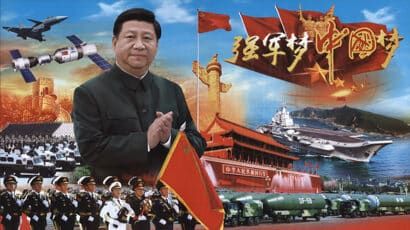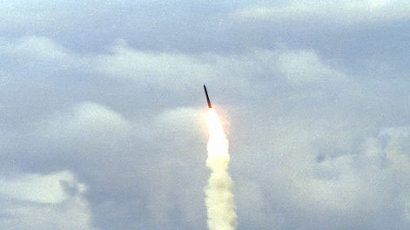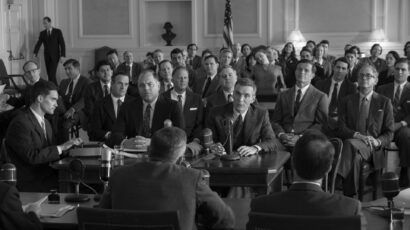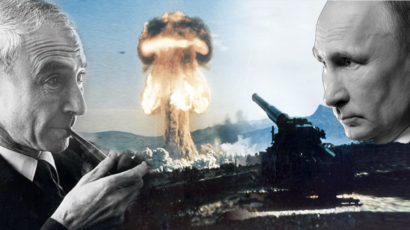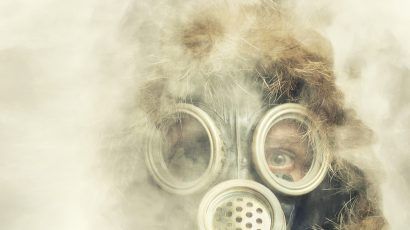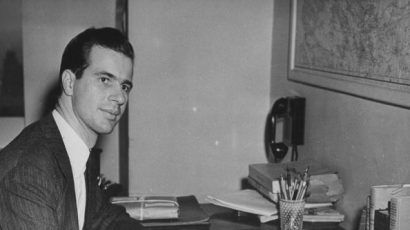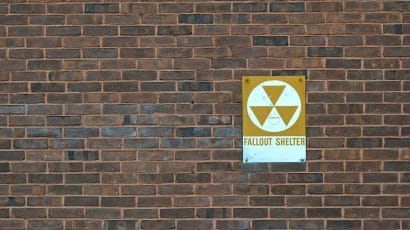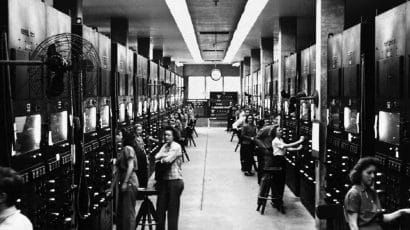Search results for trump
A Framework for Tomorrow’s Pathogen Research Final Report Chairs Ravindra Gupta Ameenah Gurib-Fakim Shahid Jameel David Relman Directors Jesse Bloom Filippa Lentzos February 2024 Introduction Reasons for hope Reasons for caution Ethical obligations Research Governance Trust-building Recommendations References Amman, B.R., C.G. Albariño, B H. Bird, L. Nyakarahuka, T.K. Sealy, S. Balinandi, A.J. Schuh et al. … Continued
The Bulletin reviews ‘Oppenheimer’
Christopher Nolan's Oppenheimer is a biopic disguised as an action thriller, or the other way around. By the time the movie gets to the Manhattan Project, everyone watching the movie is already part of the race to build the Bomb.
The trouble with Taiwan
There are many dimensions to the unfolding crisis over Taiwan’s future status—and the wisest US policy is one of realism and restraint in order to avert a disaster of global proportions.
Jan Eliasberg: Fiction as a window into the ethics of testing the Bomb
On the eve of the 75th anniversary of the first atomic bomb test, a spy thriller explores the ethical dilemmas faced by scientists splitting the atom in Nazi Germany and New Mexico.
To prevent nuclear war, borrow from 1973
A dusty US-Soviet agreement—little noticed when signed and largely forgotten since—has real potential amid today’s unpromising arms control environment to reduce the risk of nuclear war.
‘Oppenheimer’, the bomb, and arms control, then and now
The viewers of 'Oppenheimer' might walk out of theaters with a lot of blind spots, an arms control expert writes.
Oppenheimer envisioned the tactical use of nuclear weapons. Putin now threatens it
Often untold, Oppenheimer’s legacy of promoting tactical use of nuclear weapons resonates in today’s Ukraine.
1956: Science and our times
Our times have been deeply marked by science. What we think of it will shape the future. It is a great testament to man’s power and his reason; it is equally a testament to their limits. No one can have had the experience of new discovery, can have witnessed the transmutation of mystery to understanding … Continued
Horsepox synthesis: A case of the unilateralist’s curse?
If one scientist out of 100 decides to pursue biotechnology research that ought to be left alone, the consequences—theoretically—could be unconscionable. Is that what has happened with horsepox synthesis?
Scientific blinders: Learning from the moral failings of Nazi physicists
Scientific zeal blinded German physicists to the ethics of working for the Nazis. While research projects today are less fraught, the German scientists’ story bears on decisions facing those who now work to advance nuclear modernization, artificial intelligence, and synthetic biology.
The grave risk of lab-created potentially pandemic pathogens
Fourteen facilities now create and research airborne-transmissible potential pandemic viruses. The risk that a virus from one of these facilities sparks a pandemic is far too high.
Artistry, factuality, Hiroshima, and John Hersey
Nick Lemann’s most recent piece in the New Yorker, “John Hersey and the Art of Fact,” is in some sense a review of Jeremy Treglown’s new book on Hersey, “Mr. Straight Arrow.” But Lemann is certainly after (and achieves) more than one generally expects from a book review.
The explosive musical score to Oppenheimer
Though the film was pervaded with music, it went mostly unnoticed in many moments. But this made the passages in which there is no music obvious in their striking silence —and how that silence represents the gravity of the situation.
1992: What is to be done?
This time, the "unthinkable" could mean the end of nuclear weapons. Arthur C. Clarke kicks off the discussion.
Not your grandparents’ Cold War: Why America should emphasize economic rather than military strategies in its rivalry with China
Why America should emphasize economic rather than military strategies in its rivalry with China.
The hidden stumbling block to progress on nuclear weapons
Policy makers seem to conflate nuclear weapons’ symbolic meaning with their utility as weapons, and that has made it harder to abolish them.
El futuro acuerdo con Corea
El callejón sin salida nuclear de Corea del Norte no podrá resolverse mientras la desnuclearización se considere la única solución aceptable. No hay duda de que quienes proponen sanciones y presión seguirán difundiendo sus argumentos durante los próximos años, e incluso décadas. Lo mismo harán quienes creen en una solución diplomática «al estilo de Irán». … Continued
The Manhattan Project: The race to build the atomic bomb
Virtual Tour: Turn Back the Clock “] Working in secrecy and in great haste, an army of men and women raced to build the world’s first atomic bomb in the midst of World War II. The code name for their clandestine military assignment: the Manhattan Project. While most Manhattan Project scientists fully embraced the mission … Continued
The A1 Verse: Victory Day
Something more than journalism, something that approaches … poetry.
Nuclear-free NYC: How New Yorkers are disarming the legacies of the Manhattan Project
Two of the people behind some of the most progressive nuclear disarmament legislation of any major city in the United States share some details of their work, to show what others can do to bring nuclear abolitionism home. They also give a sense of New York’s long history as a nuclear city—and as a hotbed of anti-nuclear activism.


